Speakers
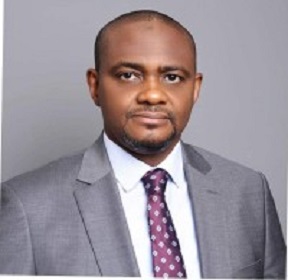
Haruna Abdullahi Elbinawi
NigeriaTitle: Medical Tourism: Economic Drain or Healthcare Gain? A Case Study of Nigeria's Healthcare Crisis and Leadership Accountability
Abstract:
Medical tourism, while offering patients access to advanced healthcare abroad, has become a significant economic and developmental challenge for Nigeria. This study critically examines the paradox of medical tourism as both a perceived healthcare solution and a contributor to national economic drain. Drawing upon data from Nigeria’s healthcare expenditure, patient outflows, and government policy reports, the paper highlights how inadequate local healthcare infrastructure and poor leadership accountability have fueled the exodus of patients seeking treatment overseas. The analysis reveals that billions of naira are lost annually, funds that could have strengthened domestic healthcare capacity. Furthermore, the study discusses how leadership inefficiency, corruption, and the lack of investment in human capital perpetuate Nigeria’s dependence on foreign medical systems. The paper concludes by proposing a leadership-driven framework aimed at revitalizing Nigeria’s healthcare sector through transparency, strategic investment, and policy reforms that prioritize local treatment options. By transforming medical tourism from an economic drain into a healthcare gain, Nigeria can reposition itself toward sustainable healthcare development and national resilience.
Biography:
Mr. Haruna Abdullahi Elbinawi is a public health researcher and healthcare policy analyst from Nigeria, with a strong interest in health systems management, leadership accountability, and healthcare financing in developing countries. His work focuses on the intersections of governance, healthcare access, and the socio-economic implications of medical tourism in Africa. Mr. Elbinawi has been involved in various health advocacy and research initiatives aimed at strengthening Nigeria’s healthcare delivery system and promoting evidence-based policy reforms. His academic and professional contributions reflect his commitment to fostering sustainable healthcare practices that benefit local communities while reducing the economic outflow associated with medical travel.
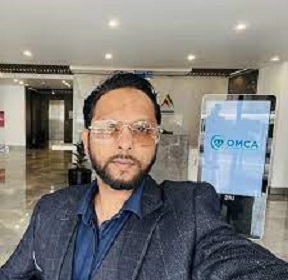
Title: Overseas Medical Care Assistance
Abstract:
Overseas Medical Care Assistance (OMCA) Ltd, founded by Mr. Dilloo Mohammad Tasleem, stands as a global facilitator in medical tourism and patient care coordination. OMCA bridges the gap between patients seeking high-quality healthcare abroad and internationally accredited medical institutions offering advanced treatments. The organization focuses on simplifying cross-border medical travel by providing end-to-end support—ranging from hospital selection and appointment scheduling to travel logistics, accommodation, and post-treatment follow-up.
Mr. Tasleem’s visionary approach emphasizes ethical medical facilitation, transparency, and personalized care. Through strategic collaborations with hospitals, insurance companies, and healthcare professionals, OMCA ensures that patients receive safe, affordable, and timely access to specialized medical services worldwide. His work contributes significantly to making global healthcare more accessible and reliable for patients across diverse backgrounds.
Biography:
Mr. Dilloo Mohammad Tasleem is the Chief Executive Officer and Founder of Overseas Medical Care Assistance (OMCA) Ltd, an internationally recognized organization dedicated to facilitating medical travel and cross-border healthcare services. With a deep passion for improving global access to quality medical care, Mr. Tasleem established OMCA to connect patients with world-class healthcare providers through a transparent and supportive process.
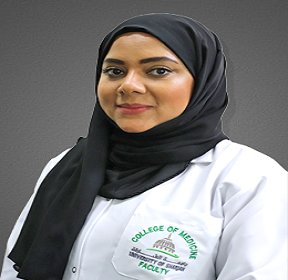
Wafa Alnakhi
USATitle: Patients from the United Arab Emirates seeking healthcare services overseas during 2009 – 2016: characteristics and motivational factors
Abstract:
The study examines the characteristics and motivational factors of patients from the United Arab Emirates (UAE) who sought healthcare services overseas between 2009 and 2016. Utilizing a mixed-methods approach, the research analyzes demographic data, treatment types, and patient-reported reasons for seeking care abroad. Findings indicate that a significant proportion of patients pursued specialized treatments not readily available in the UAE, including advanced surgical procedures, oncology care, and fertility treatments. Motivational factors influencing these decisions include perceived quality of care, shorter waiting times, access to advanced technology, and recommendations from healthcare professionals. The study highlights the implications for healthcare policy, patient education, and the development of domestic healthcare services to better meet patient needs and reduce the necessity for cross-border medical travel.
Biography:
Wafa Alnakhi is a public health researcher affiliated with the Johns Hopkins University Bloomberg School of Public Health, USA. Her research focuses on healthcare utilization patterns, patient behavior, and health system efficiency, with particular expertise in medical tourism and cross-border healthcare. Wafa has published extensively on factors influencing patient decision-making and strategies for optimizing healthcare delivery in both domestic and international contexts. She is committed to generating evidence that informs policy decisions and improves healthcare accessibility and quality for populations in the United Arab Emirates and beyond.

Ms Cheurombo Pswarayi
AfricaTitle: Challenges in Medical Tourism
Abstract:
Medical tourism has rapidly evolved as patients increasingly seek quality healthcare beyond their home countries. While the sector offers significant opportunities for economic growth and access to specialized care, it faces numerous challenges. These include regulatory differences across countries, quality assurance and patient safety concerns, ethical considerations, and logistical barriers such as travel, insurance, and post-treatment care. In this session, Ms. Cheurombo Pswarayi will explore these challenges in depth, providing insights from her experience in leading Medtours Africa. Attendees will gain a clearer understanding of the complexities of medical tourism and strategies to navigate and overcome these barriers, ensuring safe, ethical, and efficient healthcare travel experiences.
Biography:
Ms. Cheurombo Pswarayi is the Founder and CEO of Medtours Africa, a leading organization facilitating medical tourism across the African continent. With extensive experience in healthcare management and international patient services, she has been instrumental in creating pathways that connect patients to high-quality medical care while addressing the unique challenges of cross-border healthcare. Ms. Pswarayi is recognized for her expertise in navigating regulatory, logistical, and ethical aspects of medical tourism, and she is committed to promoting safe, ethical, and accessible healthcare travel.
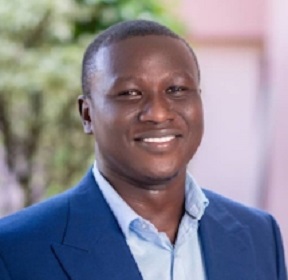
Daniel Amobtiwon Amoatika
South AfricaTitle: An evaluation of cholera surveillance system in the Ga east municipality accra
Abstract:
Cholera remains a significant public health challenge in Ghana, particularly in urban municipalities such as Ga East. Effective surveillance systems are essential for timely detection, prevention, and control of outbreaks. This study evaluates the cholera surveillance system in the Ga East Municipality, assessing its core and support functions, including data collection, reporting, laboratory confirmation, and response mechanisms. Mixed-methods approaches, including key informant interviews, review of surveillance records, and field observations, were employed. The evaluation identified strengths such as timely reporting and community engagement, as well as gaps including limited laboratory capacity and challenges in data completeness. Recommendations are provided to enhance the effectiveness and responsiveness of the surveillance system, thereby improving cholera prevention and control efforts in the municipality.
Biography:
Daniel Amobtiwon Amoatika is a researcher and public health professional affiliated with the University of KwaZulu-Natal, School of Laboratory Medicine and Medical Sciences, Durban, South Africa. His research focuses on infectious disease surveillance, epidemiology, and public health system strengthening. Daniel has contributed to studies on outbreak detection, disease prevention strategies, and health systems evaluation in both urban and rural contexts. He is committed to applying evidence-based approaches to improve disease surveillance and public health outcomes in Africa.

Joyce Pittman
USATitle: The truth is you are not the only person concerned about using virtual technologies to support personal health care during the covid-19 pandemic
Abstract:
The COVID-19 pandemic accelerated the adoption of virtual technologies across all sectors, with healthcare emerging as one of the most impacted. While the shift to telehealth and digital platforms offered essential continuity of care, it also raised concerns regarding accessibility, privacy, and the quality of patient–provider interactions. This presentation explores the collective apprehension and adaptation experienced by both healthcare providers and patients in embracing virtual care. Drawing upon interdisciplinary research and case studies, it examines the socio-technical barriers that affected user confidence and highlights the strategies implemented to foster trust and inclusivity in virtual healthcare environments. The discussion emphasizes the importance of user-centered design, digital literacy, and equitable access as key pillars for sustaining virtual health systems beyond the pandemic era. Ultimately, the study calls for collaborative innovation that bridges technology with human-centered care to ensure long-term resilience in health delivery systems.
Biography:
Dr. Joyce Pittman is a distinguished professor at Drexel University, USA, specializing in educational leadership and curriculum innovation. She has extensive experience in higher education, instructional design, and online learning development. Dr. Pittman’s research focuses on transformative education, diversity, and global learning practices. She has contributed to numerous academic publications and international education initiatives. Her work continues to inspire advancements in equitable and innovative teaching practices worldwide.
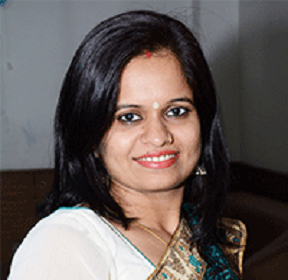
Anu Rai
IndiaTitle: Medical tourism in India – How crowd-sourced platforms can help in informed-decision making?
Abstract:
India has rapidly emerged as one of the leading destinations for medical tourism, attracting millions of international patients seeking affordable, high-quality healthcare. However, despite the industry’s exponential growth, potential medical tourists often face challenges in making informed choices—ranging from selecting the right hospitals and doctors to understanding treatment costs, travel logistics, and patient experiences.
This presentation explores how crowd-sourced platforms—leveraging real-time patient feedback, peer reviews, and data-driven insights—can bridge the information gap and enhance transparency in the medical tourism ecosystem. By integrating patient-generated data, AI-driven analytics, and verified healthcare accreditation, these platforms empower patients to make evidence-based decisions while fostering trust and accountability within the industry.
The discussion will also highlight key trends, challenges, and best practices for implementing effective digital ecosystems that support both patients and healthcare providers. Ultimately, crowd-sourced platforms have the potential to transform medical tourism in India into a more transparent, efficient, and patient-centric experience.
Biography:
Anu Rai is a researcher and academician at Adamas University, India, with a focus on healthcare management and medical tourism. Her work explores the intersection of technology, patient experience, and healthcare decision-making. With a keen interest in digital platforms and their impact on the healthcare sector, she has contributed to multiple research studies on patient engagement, healthcare accessibility, and innovation in medical services. Anu is passionate about leveraging technology to improve informed decision-making in medical tourism and enhance the overall patient journey.
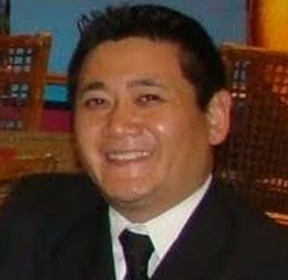
Dennis Minoru Fujita
BrazilTitle: Free Public Healthcare for Immigrants in Emerging Countrie
Abstract:
Access to free public healthcare is a critical component of social inclusion and equity, particularly for immigrants in emerging countries. Despite significant progress in expanding healthcare systems, disparities persist due to economic constraints, policy gaps, and sociocultural barriers. This presentation explores the challenges and opportunities of implementing universal and accessible healthcare for immigrant populations within emerging economies, using Brazil as a case study. It examines government policies, resource allocation, and the role of international cooperation in ensuring that migrants and refugees receive equitable health services. The discussion also highlights successful models and community-based initiatives that can serve as frameworks for other developing nations aiming to achieve health equity. Ultimately, this work advocates for inclusive healthcare reforms that recognize the human right to health, regardless of nationality or legal status.
Biography:
Dennis Minoru Fujita, Ph.D., is a distinguished researcher and faculty member at the University of São Paulo, Brazil, specializing in public health policy, healthcare access, and immigrant health equity. With over two decades of academic and policy experience, Dr. Fujita has contributed significantly to advancing inclusive healthcare models in Latin America. His research focuses on integrating migrant and vulnerable populations into national healthcare systems through sustainable and ethical approaches. Dr. Fujita has published extensively in international journals and actively collaborates with global organizations advocating for universal health coverage and social justice in healthcare. His work continues to influence policymakers and practitioners aiming to strengthen equitable health systems in emerging countries.
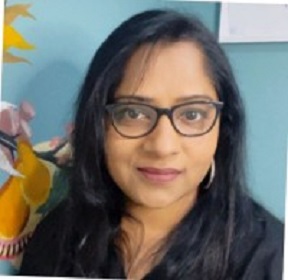
Lovely Ranganath
United Arab EmiratesTitle: Nutritional Myths-Gluten, Sweeteners, Organic & Much More
Abstract:
In today’s world of instant information, nutrition advice is more accessible than ever — yet often more confusing. Myths surrounding gluten-free diets, artificial sweeteners, and the “organic” label have led to misconceptions that affect everyday dietary choices. This presentation explores the science behind these common nutritional beliefs and debunks misinformation with evidence-based insights. Participants will gain clarity on gluten intolerance versus celiac disease, understand the role and safety of natural and artificial sweeteners, and learn the real health implications of choosing organic products. The session aims to empower individuals and professionals alike to make informed nutritional decisions rooted in scientific facts rather than popular trends.
Biography:
Lovely Ranganath is a seasoned hospitality and nutrition professional with extensive experience in culinary management and wellness-oriented menu development. Based at the Dubai World Trade Centre Hospitality, she has been instrumental in integrating healthy eating principles into large-scale food service operations, catering to diverse international audiences. Her passion for nutrition education and debunking food-related myths has made her a respected advocate for balanced, evidence-based dietary practices. With a strong background in hospitality and a deep interest in nutritional science, Lovely bridges the gap between taste, tradition, and health awareness. She frequently engages in workshops and talks aimed at promoting nutritional literacy among both professionals and the public.

